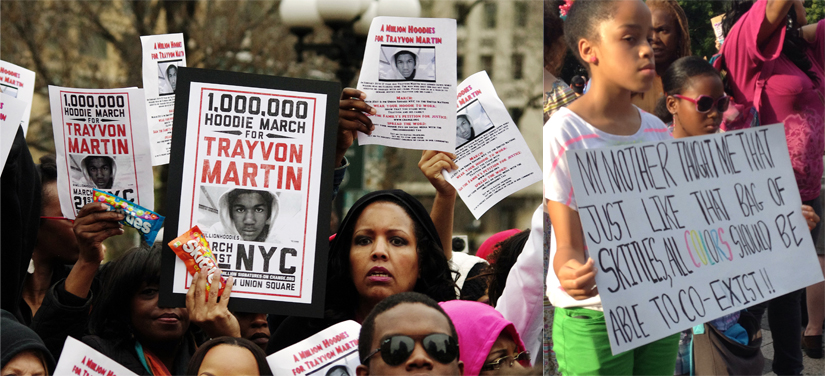Introduction to Race and Ethnicity

Trayvon Martin was a seventeen-year-old black teenager. On the evening of February 26, 2012, he was visiting with his father and his father’s fiancée in the Sanford, Florida multi-ethnic gated community where his father's fiancée lived. Trayvon left her home on foot to buy a snack from a nearby convenience store. As he was returning, George Zimmerman, a white Hispanic male and the community’s neighborhood watch program coordinator, noticed him. In light of a recent rash of break-ins, Zimmerman called the police to report a person acting suspiciously, which he had done on many other occasions. The 911 operator told Zimmerman not to follow the teen, but soon after Zimmerman and Martin had a physical confrontation. According to Zimmerman, Martin attacked him, and in the ensuing scuffle Martin was shot and killed (CNN Library 2014).
A public outcry followed Martin’s death. There were allegations of racial profiling—the use by law enforcement of race alone to determine whether to stop and detain someone—a national discussion about “Stand Your Ground Laws,” and a failed lawsuit in which Zimmerman accused NBC of airing an edited version of the 911 call that made him appear racist. Zimmerman was not arrested until April 11, when he was charged with second-degree murder by special prosecutor Angela Corey. In the ensuing trial, he was found not guilty (CNN Library 2014).
The shooting, the public response, and the trial that followed offer a snapshot of the sociology of race. Do you think race played a role in Martin’s death or in the public reaction to it? Do you think race had any influence on the initial decision not to arrest Zimmerman, or on his later acquittal? Does society fear black men, leading to racial profiling at an institutional level? What about the role of the media? Was there a deliberate attempt to manipulate public opinion? If you were a member of the jury, would you have convicted George Zimmerman?